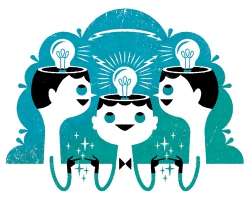What makes Luis Suarez (Digital Transformation & Data Analytics adviser at Panagenda) insightful is not just his two decades of experience, it is the fact that he practices what he preaches. He challenges the way people communicate and collaborate by not relying on e-mail for all interactions and the way knowledge workers, typically, collaborate and share by promoting openness, transparency, trust, sustainable growth, engagement, connectedness and, overall, smart work.
He would say that he is a wirearchist, a Chief Emergineer and a People Enabler, and he explained why in this interview.
We had to ask about the e-mail first...

Posted by TallyFox on 28 May 2017
Comment

Posted by TallyFox on 25 May 2017
Reintroduced by Moore nearly two decades ago, the ecosystem concept has been frequently discussed in management studies as a connection between system thinking and evolutionary economics.
Today, rather than viewing ecosystems as platforms, they are viewed as structures of relationships between interacting participants.
The ecosystem metaphor, on the other hand, is frequently used without being clearly defined, which in turn has yielded several somewhat overlapping concepts such as business, service, innovation, industrial and knowledge ecosystems.
Making Sense of Ecosystem Concepts
To understand ecosystems, we must first understand system boundaries....

Posted by TallyFox on 24 May 2017
The world is going through a digital transformation and its aim is to improve the way we live. The same goes for digital business transformation.
Why?
It is clear that digital business transformation is about providing organizations with opportunities to create new customer, product and market value. Most of the challenges and opportunities, however, reside in organisational change, affecting people, processes, structures, strategies and competitive dynamics.
We are all acquainted with Kodak's story and its lack of initiative to undergo digital transformation in a timely manner, as opposed to Fuji Films who managed to do the opposite. These two stories are...

Posted by TallyFox on 23 May 2017
When asked to define corporate culture, one might draw an analogy between human beings and organisations by saying that just as a human beings have personalities, so do the organisations whose personality lies in their organisational culture. When you break it down into components, organisational culture is the outcome of a mix of tangible, easy measurable elements and intangible elements which are essential to organisational success.
So what do we need for organisational success?
A great leader, who knows how to merge mission, values, and vision into a strong organisational culture. Without exceptional leadership, even the best mission, values and vision statements cannot come...




